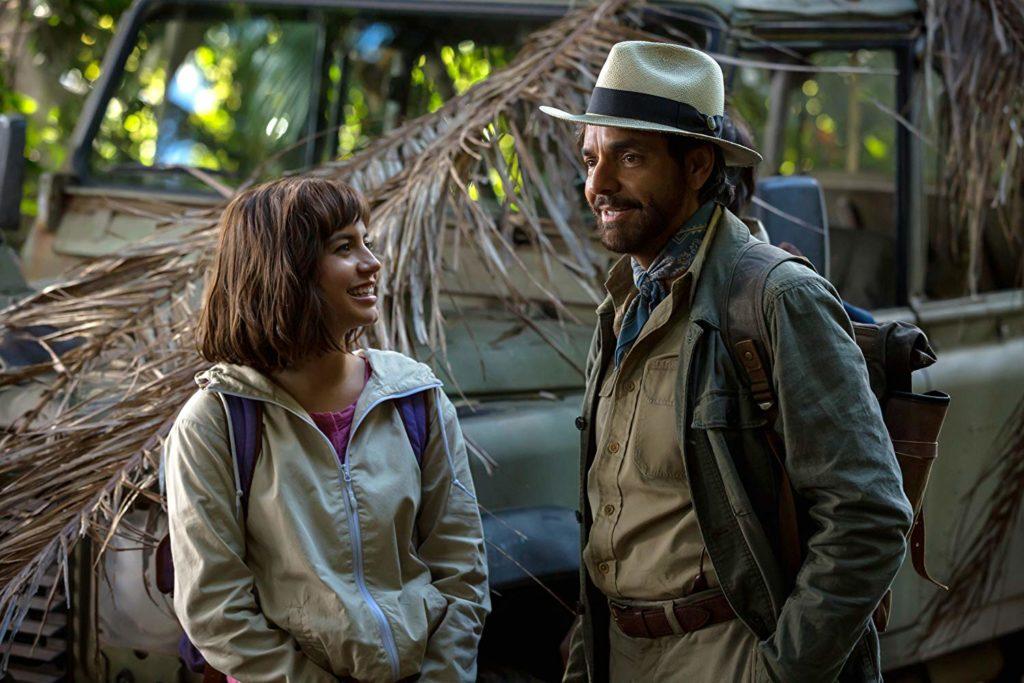Dora and the Lost City of Gold

Isabela Moner and Eugenio Derbez star in DORA AND THE LOST CITY OF GOLD. Photo by Vince Valitutti, Paramount Players.
The makers of Dora and the Lost City of Gold seized some opportunities when adapting the animated series “Dora the Explorer” for the big screen.
They expanded the audience by using the kiddie cartoon as a springboard for a coming-of-age teenage adventure, turning their heroine into an angst-ridden adolescent without sacrificing her intellect or charm.
And they embraced the chance to showcase an almost entirely Latino ensemble cast, which is consistent with the source material but nevertheless a step forward for representation in Hollywood.
So despite its uneven nature, this spirited live-action adventure should connect with a generation too young to recall Indiana Jones in his heyday.
Dora (Isabela Moner) comes from a family of explorers whose father (Michael Pena) and mother (Eva Longoria) decide to send her from the Amazon rainforest to a suburban California high school, where her cousin Diego (Jeff Wahlberg) can help her adjust.
That proves a challenge, as Dora’s social skills make her a target for bullying. Fortunately, there’s a twist that transports Dora, Diego, and some unwitting classmates back to Peru, with the goal of locating her parents — who have gone missing — and the titular treasure before a villain (Eugenio Derbez) gets his hands on it.
Despite the potential for lucrative rewards, Dora is magnanimous about her goals for the mission. “Remember, we’re explorers, not treasure hunters,” she cautions.
Moner (Sicario: Day of the Soldado) captures Dora’s infectious charisma, although her relentless wide-eyed optimism seems forced after a while. Still, even youngsters who don’t identify with the specifics of her heritage or background can connect with her enthusiastic sense of curiosity.
Perhaps more importantly, British director James Bobin (The Muppets) and his team remain true to the spirit and narrative roots of the television show, mostly avoiding the temptation to turn Dora’s ecological aspirations into nerdy punch lines.
The supporting characters lack depth, which includes the anthropomorphic holdovers (monkey, fox, backpack, etc.) from the original series. Plus, the screenplay is not subtle about delivering lessons of self-esteem, acceptance, the importance of family, and being true to yourself.
Like its protagonist, the film is scrappy and cheerful. It gains momentum when Dora is within her element and using her book-smart mix of resilience and resourcefulness. The result should be fun for those in the target demographic.
Rated PG, 102 minutes.